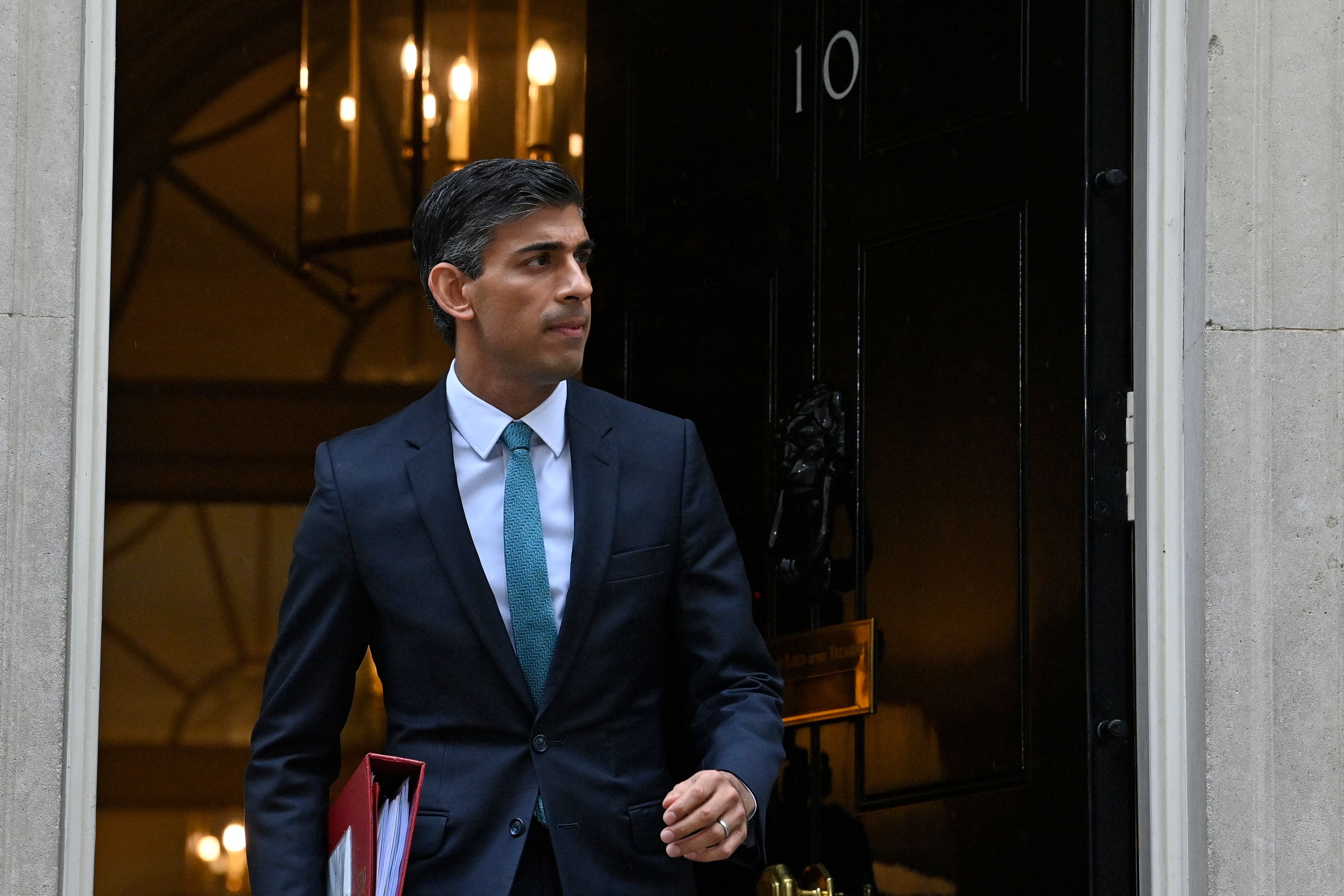This is what voters really think of Rishi Sunak
There is good and bad news for the new prime minister, writes Andrew Grice


The bad news for Rishi Sunak is that voters do not think he is a fresh start, just the latest version of Tory chaos. He can hardly blame them.
Focus groups conducted by Labour show the public think Sunak had to make Suella Braverman home secretary to appease parts of his party with whom he disagrees. Sunak is seen as a rich man who, in a typical comment, “doesn’t get what it’s like for us”. Two out of three people want a general election now, in line with The Independent’s petition, according to Labour’s private polling.
The good news for Sunak: there is another side to the public opinion coin. Research for the centrist Tory think tank Onward shows that a majority of the 2019 Tory voters the party has lost are “don’t knows” rather than people who now back Labour or other parties. The Tories have lost four times as many voters than Labour has gained. If the Tories could win back the “don’t knows”, they would be within touching distance of Keir Starmer’s party.
Onward argues that the key is to revert to economic interventionism and social conservatism of the 2019 Tory manifesto. Indeed, Sunak is talking up the manifesto, in the hope of uniting his fractious MPs and repelling the growing calls for an election by insisting the Tories still have a mandate.
Sunak’s most immediate headache is the economy. Treasury sources tell me its latest predictions for the economy could leave Jeremy Hunt with a £50bn black hole to fill in his autumn statement on 17 November. However, I suspect they are painting it blacker than it is, in the hope the spending cuts and tax rises don’t look quite so bad on the day.
Whatever the real picture, Sunak and Hunt desperately need every ounce of growth they can muster to reduce government debt. Sunak is a 2016 Brexiteer, but a pragmatic – rather than ideological – one. Hunt was a Remainer who fully accepts the Brexit decision, but does not have Liz Truss’s zeal of the convert. So they know there is one thing they could do to boost growth: confront the elephant in the room by revisiting Boris Johnson’s threadbare Brexit deal.
While ministers point to global economic problems, the frictions and barriers of the Brexit deal are a unique drag anchor on UK trade, competitiveness, prices and the business investment needed to secure growth. Trade in goods with the EU has become cumbersome, costly and bureaucratic, while regulatory barriers hinder much of the trade in services.
The public’s reaction to changing Johnson’s deal might be less hostile than Sunak imagines. Onward found that Brexit was the second most cited issue by the Tories’ lost voters when asked where the government had most gone wrong, after political scandals.
Polling for the Tony Blair Institute for Global Change found that six out of 10 people believe Brexit has worsened the UK economy, including over a third of Leave voters. A majority of people, including Leavers, overwhelmingly support a better-functioning relationship with the EU, with 77 per cent backing closer trade and border arrangements.
Pro-Europeans in both the Tory and Labour ranks are setting Sunak a test. They accept this generation of politicians is not going to reverse Brexit, but say the prime minister must now make it work. They say there are many measures, short of rejoining the single market or customs union, which would help British companies and stop more of them moving to the continent.
In a speech at Oxford University on Thursday night, Peter Mandelson argued that Sunak’s “biggest test” is whether he can “put the nation’s need to work with the EU to solve problems before his party’s desire to seek confrontation with Europe at every turn”. The former business secretary and EU trade commissioner said: “He [Sunak] is not going to be able to confront the challenges facing Britain without first taking on those who won’t face up to the reality of our post-Brexit economic and trade choices and the importance of building a stable relationship with the EU.”
To keep up to speed with all the latest opinions and comment sign up to our free weekly Voices Dispatches newsletter by clicking here
Although Starmer is often accused of ignoring the Brexit elephant to avoid handing the Tories ammunition, Mandelson suggested that might be changing, given the Labour leader’s strong belief in a partnership between government and business. “Labour is not going to reopen the original Brexit decision,” he said, “but nor should it be held hostage to its terms because we know that Britain needs to exploit trade opportunities in Europe more fully if we are to start growing again.”
Sunak would probably agree, in private. The question is whether he has the courage and political space to confront the hardline Brexiteers in his party. His decision to reappoint Braverman, the darling of the European Research Group, suggests not. But he has a golden opportunity: the “Singapore-on-Thames” version of a low tax, low regulation Brexit Britain has been discredited by Truss’s disastrous premiership.
For his party’s sake (to deliver growth) and the country’s (given the dire state of the public finances), Sunak cannot afford to be a prisoner of the right. He will need to bite the Brexit bullet.






Join our commenting forum
Join thought-provoking conversations, follow other Independent readers and see their replies
Comments